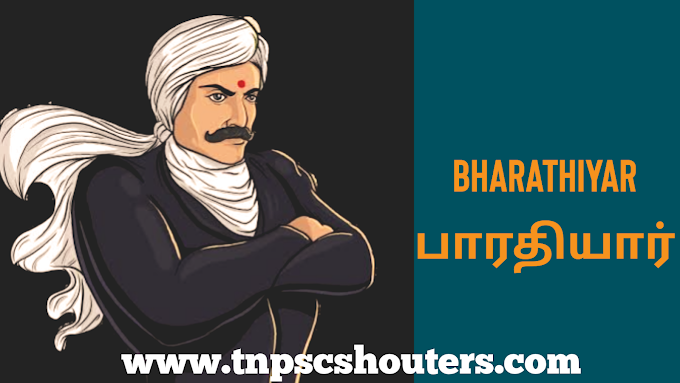TAMIL
- உலகம் முழுவதும் ஆண்டு தோறும் நவம்பர் 16ம்தேதி ஐக்கிநாடுகள் சபை சார்பில் சர்வதேச சகிப்புத்தன்மை தினம் அனுசரிக்கப்படுகிறது.
- 1996ம் ஆண்டு முதல் சர்வதேச சகிப்புத்தன்மை தினம் அனுசரிக்கப்படுகிறது.மனித குலம் வாழ்வதற்கு தேவையான அன்பு, பரிவு, ஒற்றுமை, சகோதரத்துவம், கருணை, மனிதநேயம் உள்ளிட்ட பல்வேறு உணர்வுகளுக்கு அடிப்படையாக இருப்பது சகிப்புத்தன்மை
- 1996 ஆம் ஆண்டில், ஐக்கிய நாடுகளின் பொதுச் சபை (51/95 தீர்மானத்தின் மூலம்) நவம்பர் 16 அன்று சகிப்புத்தன்மைக்கான சர்வதேச தினத்தை அனுசரிக்க ஐ.நா உறுப்பு நாடுகளை அழைத்தது.
- 1995 ஆம் ஆண்டுக்கான சகிப்புத்தன்மை மற்றும் பின்தொடர்தல் செயல்திட்டத்தின் கொள்கைகளின் பிரகடனத்தில் கோடிட்டுக் காட்டப்பட்டுள்ளபடி, யுனெஸ்கோவின் முன்முயற்சியில் 1993 ஆம் ஆண்டு ஐ.நா பொதுச் சபையால் பிரகடனப்படுத்தப்பட்ட ஐக்கிய நாடுகளின் சகிப்புத்தன்மை ஆண்டு, 1995 இல் இந்த நடவடிக்கை தொடர்ந்தது.
- ஐக்கிய நாடுகள் சபையின் சகிப்புத்தன்மை ஆண்டு மற்றும் மகாத்மா காந்தியின் 125 வது பிறந்த நாளைக் குறிக்கும் வகையில், யுனெஸ்கோ சகிப்புத்தன்மை மற்றும் அகிம்சையை ஊக்குவிப்பதற்காக ஒரு பரிசை உருவாக்கியது.
- சகிப்புத்தன்மை மற்றும் அகிம்சையின் உணர்வை மேம்படுத்துவதை நோக்கமாகக் கொண்ட அறிவியல், கலை, கலாச்சார அல்லது தகவல் தொடர்புத் துறைகளில் குறிப்பிடத்தக்க செயல்பாடுகளுக்கு வெகுமதி அளிக்கிறது.
- இந்த பரிசு இரண்டு ஆண்டுகளுக்கு ஒருமுறை சர்வதேச சகிப்புத்தன்மை தினமான நவம்பர் 16 அன்று வழங்கப்படுகிறது. சகிப்புத்தன்மை மற்றும் அகிம்சைக்கு குறிப்பாக தகுதியான மற்றும் பயனுள்ள முறையில் பங்களித்த நிறுவனங்கள், நிறுவனங்கள் அல்லது நபர்களுக்கு பரிசு வழங்கப்படலாம்.
- காங்கோவில் உள்ள ஜனநாயகக் குடியரசின் மையத் தீர்மான மோதல்கள் (CRC) மனித உரிமைகளைப் பாதுகாப்பதற்கான அதன் பணிக்காகவும், போராளிக் குழுக்களில் இருந்து குழந்தை வீரர்களை மீட்பதில் அயராத அர்ப்பணிப்புக்காகவும், அவர்களின் மறுவாழ்வு மற்றும் அவர்களது சொந்த சமூகங்களில் மீண்டும் ஒருங்கிணைக்கவும் அங்கீகரிக்கப்பட்டுள்ளது.
- 16 நவம்பர் 1995 அன்று அதன் ஐம்பதாவது ஆண்டு நிறைவையொட்டி, யுனெஸ்கோவின் உறுப்பு நாடுகள் சகிப்புத்தன்மை குறித்த கொள்கைகளின் பிரகடனத்தை ஏற்றுக்கொண்டன.
- மற்றவற்றுடன், சகிப்புத்தன்மை என்பது நமது உலகின் பல்வேறு கலாச்சாரங்கள், நமது வெளிப்பாட்டின் வடிவங்கள் மற்றும் மனிதனாக இருப்பதற்கான வழிகள் ஆகியவற்றின் மரியாதை மற்றும் பாராட்டுதல் என்பதை உறுதிப்படுத்துகிறது.
- சகிப்புத்தன்மை என்பது உலகளாவிய மனித உரிமைகள் மற்றும் மற்றவர்களின் அடிப்படை சுதந்திரங்களை அங்கீகரிக்கிறது. மக்கள் இயற்கையாகவே வேறுபட்டவர்கள்; சகிப்புத்தன்மை மட்டுமே உலகின் ஒவ்வொரு பிராந்தியத்திலும் கலப்பு சமூகங்களின் உயிர்வாழ்வை உறுதிப்படுத்த முடியும்.
- பிரகடனம் சகிப்புத்தன்மையை ஒரு தார்மீக கடமையாக மட்டுமல்லாமல், தனிநபர்கள், குழுக்கள் மற்றும் மாநிலங்களுக்கான அரசியல் மற்றும் சட்டத் தேவையாகவும் தகுதி பெறுகிறது.
- சமூகத்தில் உள்ள அனைத்துக் குழுக்களுக்கும் தனிநபர்களுக்கும் சமமான சிகிச்சை மற்றும் வாய்ப்பை உறுதி செய்ய தேவையான போது மாநிலங்கள் புதிய சட்டத்தை உருவாக்க வேண்டும் என்று வலியுறுத்துகிறது.
- சகிப்புத்தன்மைக்கான கல்வியானது மற்றவர்களின் பயம் மற்றும் ஒதுக்கீட்டிற்கு வழிவகுக்கும் தாக்கங்களை எதிர்கொள்வதை நோக்கமாகக் கொண்டிருக்க வேண்டும் மற்றும் இளைஞர்கள் சுயாதீனமான தீர்ப்பு, விமர்சன சிந்தனை மற்றும் நெறிமுறை பகுத்தறிவு திறன்களை வளர்க்க உதவ வேண்டும். நமது உலகின் பல மதங்கள், மொழிகள், கலாச்சாரங்கள் மற்றும் இனங்களின் பன்முகத்தன்மை மோதலுக்கான சாக்குப்போக்கு அல்ல, மாறாக நம் அனைவரையும் வளப்படுத்தும் பொக்கிஷம்.
- In 1996, the UNITED NATIONS General Assembly (by resolution 51/95) invited UN Member States to observe the International Day for Tolerance on 16 November.
- This action followed up on the United Nations Year for Tolerance, 1995, proclaimed by the UN General Assembly in 1993 at the initiative of UNESCO, as outlined in the Declaration of Principles on Tolerance and Follow-up Plan of Action for the Year.
- In 1995, to mark the United Nations Year for Tolerance and the 125th anniversary of the birth of Mahatma Gandhi, UNESCO created a prize for the promotion of tolerance and non-violence.
- The UNESCO-Madanjeet Singh Prize for the Promotion of Tolerance and Non-Violence rewards significant activities in the scientific, artistic, cultural or communication fields aimed at the promotion of a spirit of tolerance and non-violence.
- The prize is awarded every two years on the International Day for Tolerance, 16 November. The Prize may be awarded to institutions, organizations or persons, who have contributed in a particularly meritorious and effective manner to tolerance and non-violence.
- Centre Résolution Conflits (CRC) from the Democratic Republic in Congo is recognized for its work for the defence of human rights, its tireless commitment to the rescue of child soldiers from militia groups, and their rehabilitation and reintegration into their home communities.
- For its fiftieth anniversary on 16 November 1995, UNESCO's Member States adopted a Declaration of Principles on Tolerance. Among other things, the Declaration affirms that tolerance is respect and appreciation of the rich variety of our world's cultures, our forms of expression and ways of being human.
- Tolerance recognizes the universal human rights and fundamental freedoms of others. People are naturally diverse; only tolerance can ensure the survival of mixed communities in every region of the globe.
- The Declaration qualifies tolerance not only as a moral duty, but also as a political and legal requirement for individuals, groups and States. It emphasizes that States should draft new legislation when necessary to ensure equality of treatment and of opportunity for all groups and individuals in society.
- Education for tolerance should aim at countering influences that lead to fear and exclusion of others and should help young people develop capacities for independent judgement, critical thinking and ethical reasoning.
- The diversity of our world's many religions, languages, cultures and ethnicities is not a pretext for conflict, but is a treasure that enriches us all.










